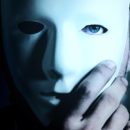OCD: Screaming, Blurting Out Obscenities/Cursing/Profanity, & Other Unwanted Impulses
Question: I’m a teenager and keep having OCD symptoms related to impulse control. I often worry that I’ll lose control and scream or blurt out obscenities. I am especially triggered in quiet public places like classrooms, churches, and movie theaters. I have never actually acted on my impulses and cursed in public, but I still feel very anxious whenever these thoughts occur. Do you have any tips for me? These types of symptoms are very similar to other OCD symptoms in which people worry about losing control and acting on unwanted impulses. Most typically, these types of thoughts attach to situations that are considered morally or socially taboo. Related OCD symptoms include fears about losing control and: Harming a loved one (most often fear of harming a child, spouse, or parent). Killing a loved one (i.e., stabbing, shooting, suffocating,...
Read MoreOCD Triggers in Daily Life? Don’t Ritualize. Be Strategic! 3 Tips for Fighting OCD.
Question: I know about ERP, and I understand that OCD symptoms can be reduced by resisting rituals and then habituating to the anxiety brought on by obsessive thoughts. However…what if an obsessional thought requires no ritual? Confused! Great question. I think that in all cases of obsessive-compulsive disorder (OCD), there is some type of ongoing ritual that maintains the obsessional thought. This is because OCD is caused by threat misappraisals that are perpetuated and negatively reinforced by compulsive behaviors. As long as your compulsive behaviors remain in place, you are prevented from having the type of corrective learning experiences that are necessary for you to recover from your OCD. The reason that ERP is so effective is because it allows you to build these types of corrective learning experiences into your daily life. Sometimes a person has very obvious...
Read MorePure-O OCD Rituals: Starting Over, Resetting, & Undoing
Question: It’s hard to describe this, but I feel like every few days I need to mentally “start over” by doing a variety of mental and behavioral rituals. I don’t want to live like this, but I’m afraid that if I undergo treatment and stop my OCD rituals, I won’t be the same person with the same drives. Starting Over, Resetting, & Undoing Compulsions in OCD First, please rest assured that you’re not alone in experiencing these symptoms. Many people with OCD (“Pure-O” or otherwise) refer to them as “starting over” compulsions, “resetting” compulsions, or “undoing” compulsions, which serve the function of returning to a clean mental slate. Sometimes these compulsions consist of particular movements, self-statements, mental activities, or complex rituals with both behavioral and mental components. They are not as common as other types of rituals (e.g., washing,...
Read More“Pure-O” OCD: Common Obsessions & Mental Rituals
As a follow-up to my previous post on Pure-O OCD, I thought it might be helpful to identify some obsessions that are commonly reported by individuals with Pure Obsessional OCD. These same obsessions may also be experienced by individuals with non-Pure-O forms of the disorder. Keep in mind that some of these symptoms are quite common (when experienced in a limited form) and may or may not represent an underlying psychological condition. If you experience symptoms like these, consult with your doctor for clarification. I am also available to conduct assessments and provide treatment if you’re located in South Florida (Palm Beach Gardens, Jupiter, West Palm Beach, Fort Lauderdale, Boca Raton, Boynton Beach, & Miami). Remember that most people who have Pure-O OCD actually perform compulsions. These compulsions just tend to be mental rather than behavioral in nature. Mental rituals...
Read MorePure-O OCD (Pure Obsessional OCD): Hidden Rituals
“Pure-O” OCD, or Pure Obsessional OCD, is a relatively less common form of OCD that seemingly differs from classic presentations of the illness. What distinguishes Pure Obsessional OCD from classic OCD is that in Pure-O OCD, symptoms are predominantly obsessive (rather than compulsive) in nature. Although individuals with Pure-O OCD frequently experience intense and distressing obsessions, they typically report few (if any) overt compulsive behaviors. However, in almost all cases, pure obsessionals do engage in a variety of rituals. These rituals just manifest as mental compulsions rather than behavioral compulsions. Unfortunately, most psychologists haven’t been trained in how to ask the types of questions that are necessary to identify these “hidden rituals.” As a consequence, these rituals often go undetected. Because effective treatment requires consistent response prevention, a failure to recognize and resist mental compulsions makes true exposure and response prevention (ERP) impossible. Treatment...
Read MoreOCD, ERP, & doubt sensitivity: Shattering the illusion of certainty
Many individuals with OCD hunger for certainty. It’s a craving that often can’t be easily sated. Early conceptions of OCD from the 19th century acknowledged this issue directly, in that OCD was often termed the “doubting disease.” It is this need for certainty, the need to eliminate doubt, that leads many people with OCD to perform repetitive behaviors, which are known as rituals. For example, it is doubt about whether one’s hands are sufficiently clean that leads one to engage in repetitive hand-washing rituals. Likewise, uncertainty about whether a stove has been turned off (and worry about potentially dire consequences) can underlie checking rituals. Many different types of rituals involve reassurance-seeking behaviors. For people with OCD who have intrusive bad thoughts (e.g., What if I secretly want to hurt a family member? What if I don’t believe in God...
Read More








